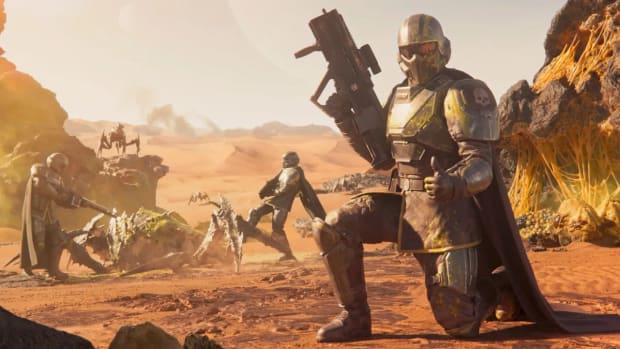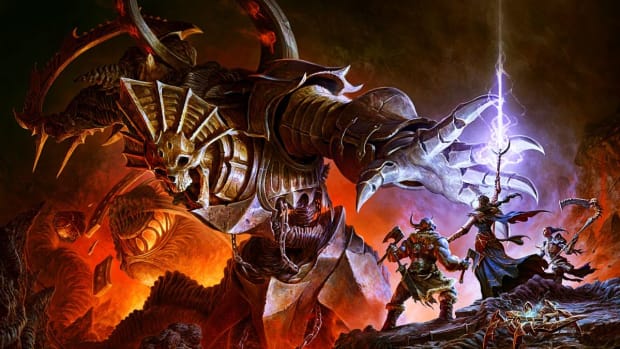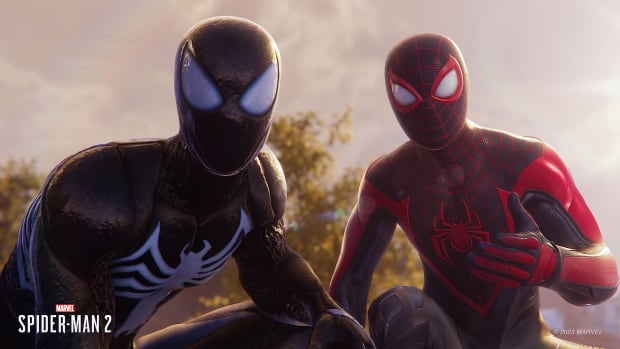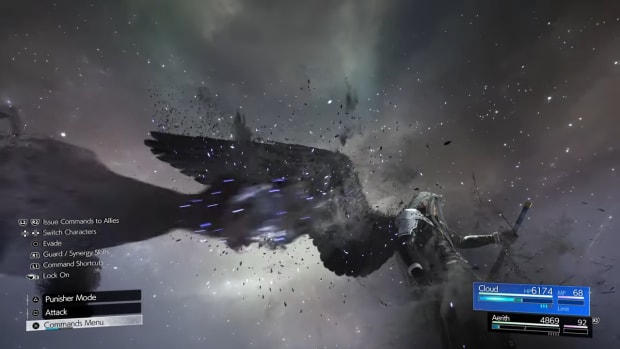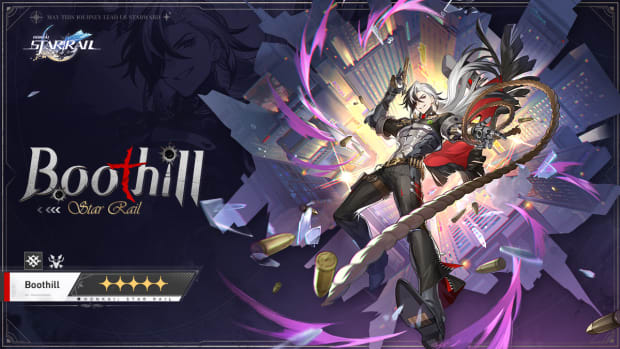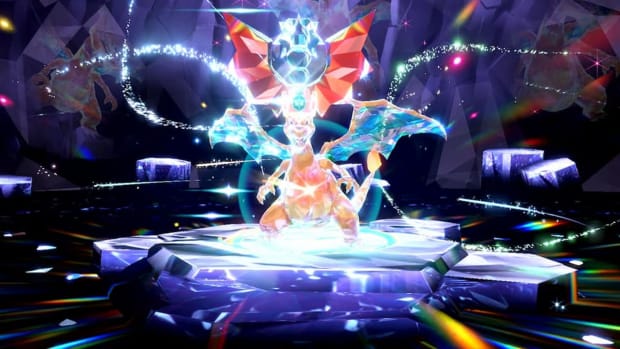
Opinion: Esports Keeps Ignoring The FGC At Its Own Peril

Last week, one of the biggest esports in the world, Counter-Strike, revealed its next iteration Counter-Strike 2. The reception was mostly positive within the Counter Strike community. I compare this to the announcements and subsequent teases of Street Fighter 6 and Tekken 8. Virtually everything we are seeing about these games is generating positive feedback. Couple that with the leak of Mortal Kombat 12 and you’ve got a vertical of esports that’s looking primed to enter a second golden era. But if you checked in with your average esports outlet or talking head, you wouldn’t even know about it. And that’s a total disservice to the entirety of esports.
Continually, the fighting game community (FGC) remains maligned, misunderstood and in many cases flat out ignored. But if you look deeper you can see a scene that’s rife with personality, storylines, and enough passion to fuel even the most jaded of gamers. Even with so much new energy and collaboration between publishers and players, fighting games continue to be on the periphery of esports. So let’s examine how the FGC is priming itself to grow, and why the esports media is continuing to downplay it.
It’s Not About The Money, But It Is.
I get it. Warm-fuzzy feelings don’t pay the bills or get the headlines and fighting games are notorious for their paltry prize pools. But some are starting to address that. Capcom announced that for their first season of Capcom Pro Tour with Street Fighter 6 that the prize pool would be $2 Million with the winner leaving home with a guaranteed $1 Million. This would be far and away the largest fighting game purse in history. Over twice as much as each Invictus Gaming player got for winning Worlds in 2018. In fact, it would be one of the largest individual purses for esports, ever.
Not only does this put pressure on other fighting game makers, but it also sets the standard that the community should be rewarded for the work it’s done. And while we shouldn’t expect multi-million dollar prize pools for everything, there’s no reason that the big year end publisher-based tournaments can’t have sizable pools. For far too long the FGC languished at the bottom of the esports payment pyramid. But now with developers/publishers like Bandai Namco, Capcom, and in the future, Riot Games, the economics are starting to catch up to the hype. Not to mention there’s a number of top flight organizations re-investing into the FGC. Legacy teams like Counter Logic Gaming and Evil Geniuses maintain solid rosters. And Red Bull, one of esports’ long time sponsors, continues to partner with multiple players in multiple games.
Back in 2020, it was hard to see how fighting games would sustain. More than most esports, the FGC relied on live events and tournaments. But now with the advent of tech like rollback netcode, online competition is more viable and even. In conjunction with crowdfunding platforms like Matcherino, the FGC has found ways to become more resilient than ever. And it just so happens that, in the near future, even more support is on the way.
The Devs Are In, Why Aren’t You?
I also broach this topic with the backdrop of EVO Japan happening this weekend. Not only does this represent the start of the FGC “season” but also a return to the hybrid model of competition that’s made fighting games some of the most accessible esports on earth.
Most esports currently operate under the auspices of who developed the game (i.e. Riot/LCS and Activision Blizzard/OWL). This has some pretty sweet advantages like salary structures, profit sharing and other “meat sports” like bylaws. In turn, there's some pretty stringent rules on just how big non-publisher run events can get. For example, if you aren’t with Riot Games, you cannot organize a League of Legends tournament with a prize pool larger than $50,000. And for a team based game that requires five players at all times, the financial benefits decrease significantly without entering the official Riot ecosystem. This system unfortunately can create an atmosphere where inroads to the top level of most esports are painfully narrow and new talent becomes harder to cultivate. There’s examples of this also within fighting games (yes, I know I’m counting Smash). But there’s a very contentious relationship between Nintendo and the Smash community, in particular around what constitutes a “tournament” or not. Eventually this friction (in addition to some alleged skullduggery from TOs) lead to the cancellation of an entire tournament series. Further proving that without support from the publisher, any esports event is subject to being shut down.
On the flipside, (most) fighting game publishers have decided to work in tandem with their community. Big events like EVO, Combo Breaker, The MixUp and CEO are steps on the path to qualifying for big publisher-run events like Tekken World Tour. There’s no closed system, you don’t have to be “Ultra Phantasmal Challenger Effervescent” rank to get invited to the tournament. You just have to show up, pay your entry fee and win. And if there’s more than a certain dollar amount in entries, so be it. Combine that with online qualifiers and you have a system where no matter where you are in the world, you can have a chance to play against the pros. And isn’t that a good thing? Don’t we want EVERYONE to experience the grandeur of esports?
Is It The Who And Not The What?
So if the FGC’s got this really interesting community-based system and a culture based on consistent success, you’d expect this to be all over esports news right? Nope. As a matter of fact, Dexerto, Dot Esports and many other sites don’t even have categories for it (they have FGC tags, but not top billed sections). But I get it. It’s about the clicks and the money. DOTA gives out like $30 million dollars a year for The International, right? League of Legends has a crazy prize pool every year. And Overwatch League is still around, let's include that too! But what if I told you, you don’t hear about the FGC because its top talents are black….and brown…and LGBTQ+.
Now that’s a tongue-in-cheek statement, but ultimately, it's got some validity to it. Because let’s face it, consoles are cheaper than gaming PCs. In fact, African Americans are 10% less likely to even have a PC in the home, let alone a gaming one. That gap closes nearly even for Black people when it comes to consoles. But most contemporary esports are played on PC. And while PC-only gamers represent a smaller cohort than console-only gamers, they tend to spend more money on their games.
This means PC gamers buy more skins and loot boxes, which boosts prize pools, which raises the stakes, which gets more coverage, which means you can get a nice and lovely headline about a scrawny kid from Pennsylvania winning four million dollars from clicking his mouse like a madman. Essentially, FGC members aren’t as lauded as their PC counterparts, because the folks writing the stories live in a mostly PC space. I don’t think it's intentional, but it is a major blind spot that erases black, brown and LGBTQ+ communities from the foundations of esports.
Conversely, this also means that the FGC tends to be more diverse. There’s top flight players from all over the world. The current reigning Tekken World Tour champion, Atif "Atif Butt" Ijaz, is from Pakistan. A region virtually invisible to the rest of esports. The only two-time Capcom Cup champion ever, Saul Leonardo "MenaRD" Mena, hails from the Dominican Republic. Folks like Jeannail "Cuddle_Core" Carter are pushing for more women to get into fighting games. And the greatest Mortal Kombat/Injustice player to ever live is in their own words a “gay, black, furry”. So while the rest of esports tries to figure out which definition of diversity they actually want to use, the FGC stands as a living testament to the collective power of gaming.
Let’s Do Better
So why then is it still such a chore to get the greater esports community to give the FGC it's just deserts? Especially now when the financial situation for many esports is tenuous to say the least, why not take a leap and integrate more fighting game content. There’s more than enough games, and plenty of personality to go around. But more than that, it's becoming a feel good community of esports. Players are excited about the development direction of games, game companies are partnering with community TOs and putting on fantastic events. And most of all the scene is positioning itself to finally become more financially enticing to pros.
So do me a favor, take some time over the weekend and give EVO Japan a shot, pick out a game that looks good to you and watch the finals at least. If you can come back to me and say it didn’t move you, this’ll be the last time I write a piece like this. But I don’t think that will be the case.

